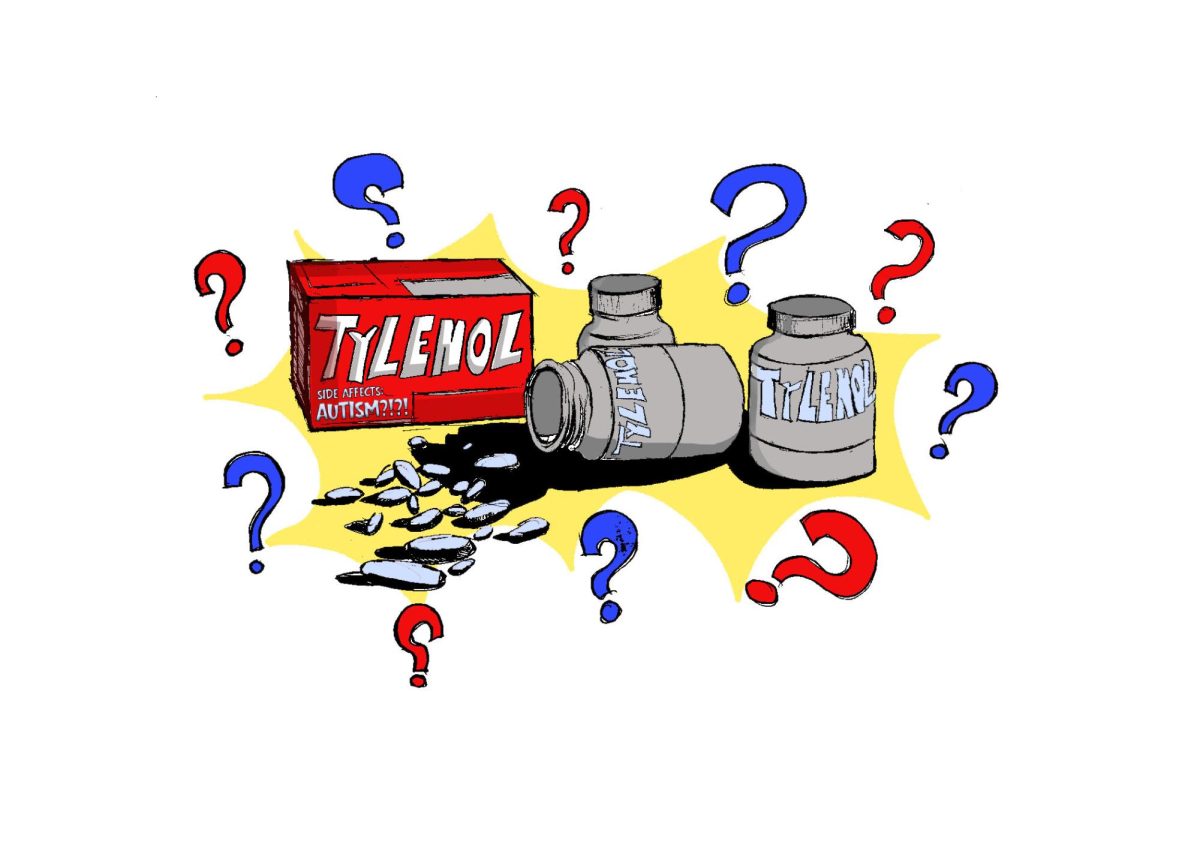The spread of medical misinformation has been rapidly increasing in the United States due to a lack of media literacy and recent claims made by the Trump administration that blatantly ignore scientific research.
Medical misinformation is known to decrease public health and can foster mistrust towards health professionals, which can be extremely damaging to an already divided nation.
From vaccine conspiracies to concerns about the consumption of fluoride in water, our current Secretary of Health and Human Services, Robert F. Kennedy Jr., has shared a variety of health theories with the public. A majority of them have already been debunked by medical professionals.
Kennedy announced earlier this year that he would discover the cause of autism by September. On Sept. 22, it was officially announced by President Donald Trump in a press conference that autism is caused by the consumption of acetaminophen, more commonly known as Tylenol, during pregnancy.
According to the Food and Drug Administration (FDA), while there may be some correlation to Tylenol and neurological conditions, studies do not indicate that Tylenol causes autism. Correlation does not equal causation. Additionally, Tylenol is one of the safer pain medications for pregnant women, and is often used to reduce pain and fevers. Autism is a complex disorder that stems from a variety of factors, such as genetics, and doesn’t have one definitive cause.
This isn’t the first time the Trump Administration has tried to provide an oversimplified explanation for autism. Kennedy previously tried to tie vaccines to rising rates of autism.
During the press conference, Trump suggested that Amish communities have “essentially no autism” because they don’t receive medication or vaccinations. However, autism has been around for much longer than vaccines and medications, and hasn’t been proven to be increasing; screening for autism has just improved over the past couple of decades.
Despite this evidence, the FDA is expected to change labels on acetaminophen products to reflect these baseless claims, and a majority of Trump and Kennedy’s fans support Kennedy’s findings.
Believing any misinformation, especially medical misinformation, can have damaging effects when the line between fact and myth starts to blur. For example, restricting Tylenol during pregnancy can do more harm than good, as untreated fevers can harm both the mother and the fetus. Refusing vaccines can lead to illness such as the measles that have almost been completely eliminated, to come back and spread more commonly.
Many Americans don’t realize the harm of falling for misinformation and its negative impacts on public wellness. A recent study from the Physicians Foundation found that 85 percent of physicians believe medical misinformation has increased over the past five years.
This trend has stemmed from a lack of media literacy, and the ability to fact-check sources. Misinformation can spread like wildfire through the internet, especially when people are not getting their information from credible sources and experts who are educated in their field. In a polarized political climate, it can be difficult to distinguish the truth, making critical thinking our best defense.








